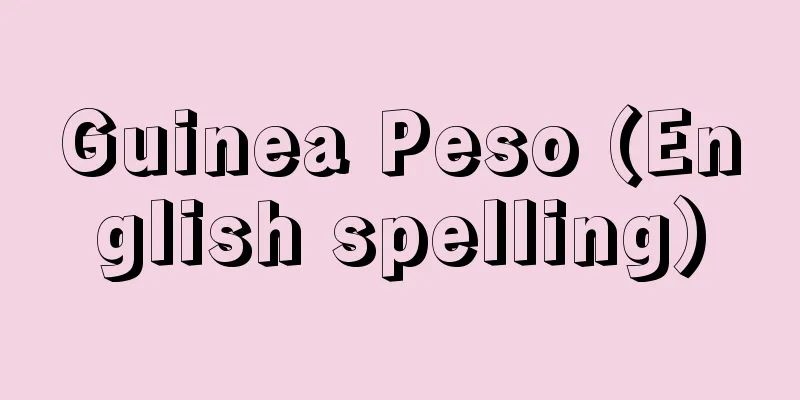Absurd Theatre (Fujiorigeki) (French: Theatre of the Absurd)

|
A play that considers the human condition in the world to be absurd and uses this as the impetus for the play. Broadly speaking, ancient Greek tragedies also had absurdity at the center of the play, called fate, but generally it refers to avant-garde plays that were mainly produced in France after World War II, influenced by Kafka and others, and pioneered by Strindberg and Jarry, with a background in existentialism and surrealism. Sartre's The Fly (1943) and No Exit (1944), and Camus' Caligula (1944) and Misunderstanding (1944) borrowed existing theatrical forms to show the absurdity of the world and the gratuitousness of existence. These plays progress through the consistent actions of characters with unified personalities, and the absurdity hidden behind them is gradually explained logically. In contrast, works that broke the classical concept of drama in order to present it more directly and concretely to the audience include Ionesco's The Bald Singer (1950), Beckett's Waiting for Godot (1953), Genet's The Maids (1947), and Adamov's The Invasion (1950). In these works, the characters lose their self-identity, language loses its ability to communicate, and time and space lose their reality, making the drama itself absurd, and they are sometimes called anti-théâtre. However, by eliminating the depiction of everyday psychology and character and the accompanying stories that were the subject of existing drama, these works can also be said to be attempts to return to the origins of drama in that they purely stage questions about the fundamental situation in which humans find themselves. The success of these plays in Paris had an international impact, producing such playwrights as Pinter in England, Albee in America, Weiss in Germany, and Mrozek in Poland. In France, Arrabal and Weingarten were also active, and in Japan, Betsuyaku Minoru is a representative example of this trend. [Ando Shinya] "Theatre of the Absurd" by Martin Esslin, translated by Yushi Odashima et al. (1968, Shobunsha) "Contemporary World Theatre 6-8 (Theatre of the Absurd 1-3)" (1971, Hakusuisha) Source: Shogakukan Encyclopedia Nipponica About Encyclopedia Nipponica Information | Legend |
|
世界における人間のあり方を不条理ととらえ、それを劇の契機とする演劇。広く考えれば、すでに古代ギリシアの悲劇も宿命という名で不条理を劇の中心に置いているが、普通には、実存主義やシュルレアリスムの思想を背景に、カフカなどの影響を受け、ストリンドベリやジャリを先駆とする第二次世界大戦後のフランスを中心にした前衛劇をさす。世界の不条理と存在の無償性を示すために既成の劇形式を借りたのが、サルトルの『蠅(はえ)』(1943)や『出口なし』(1944)、カミュの『カリギュラ』(1944)や『誤解』(1944)である。これらの戯曲は、統一ある人格をもった登場人物の筋の通った行動によって劇を進行させ、その裏に隠れた不条理性を論理的に徐々に説明してゆく。これに対して、それをより直接的、具体的に観客に示すために古典的な劇概念を破壊したのが、イヨネスコの『禿(はげ)の女歌手』(1950)、ベケットの『ゴドーを待ちながら』(1953)、ジュネの『女中たち』(1947)、アダモフの『侵入』(1950)などである。これらの作品では、登場人物が自己同一性を、言語がその伝達能力を、時間・空間が現実性を失って、演劇そのものが不条理となるので、とくにアンチ・テアトルanti-théâtre(反演劇)とよばれることもある。しかし、既成の演劇の主題であった日常的な心理や性格の描写とそれに伴う物語を排することによって、人間の置かれた根本的な状況についての問いかけを純粋に舞台化した点で、むしろ演劇の原点に帰る試みであるともいえる。パリにおけるこれらの戯曲の上演の成功は国際的影響を及ぼし、イギリスのピンター、アメリカのオールビー、ドイツのワイス、ポーランドのムロジェクなどが輩出し、フランスでもアラバール、ワインガルテンらが活躍、さらに日本でも別役実(べつやくみのる)がこの傾向を代表している。 [安堂信也] 『マーチン・エスリン著、小田島雄志他訳『不条理の演劇』(1968・晶文社)』▽『『現代世界演劇6~8(不条理劇1~3)』(1971・白水社)』 出典 小学館 日本大百科全書(ニッポニカ)日本大百科全書(ニッポニカ)について 情報 | 凡例 |
Recommend
Osmotic pressure
When two solutions with different concentrations ...
Gold digger
〘 noun 〙 The act of digging for gold and silver in...
Free radical
…Free radicals are also called free radicals or r...
Shinto Myo Moku Rui Jyu Sho
A Shinto book in the form of an encyclopedia from ...
Meiji Jingu Tournament
A national athletics tournament held annually or e...
Takuhan - Takuhan
A relief printing technique in which paper is plac...
Tomé, N. (English spelling) TomeN
…An architectural style of the late Spanish Baroq...
Dendrocnide
...The stems of the nettle are strong and can be ...
War of Inheritance - War of Inheritance
…the war of 1667-68 in which Louis XIV of France ...
Usuri snail - Usuri snail
...Northern individuals have horns around the bod...
Paste - paste (English spelling)
Foods in a ground state. There are various types,...
The polluter pays principle
…It is an acronym for the polluter pays principle...
Laurus nobilis; laurel; noble laurel; victoris laurel
An evergreen tall tree of the Lauraceae family. Na...
Meri (English spelling) Veijo Väinö Valvo Meri
Finnish novelist, poet and playwright. Born in Vi...
CTC - Center Technology Center
Abbreviation for centralized traffic control. Also...
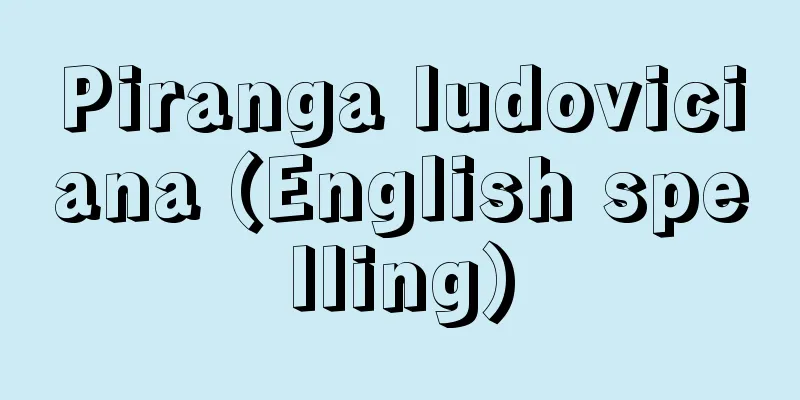

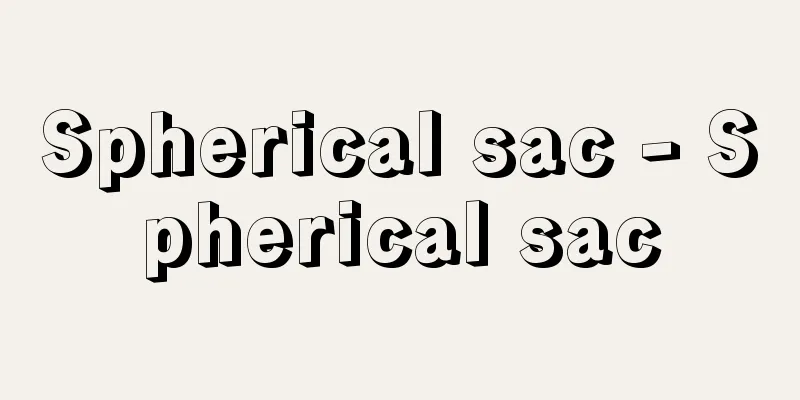

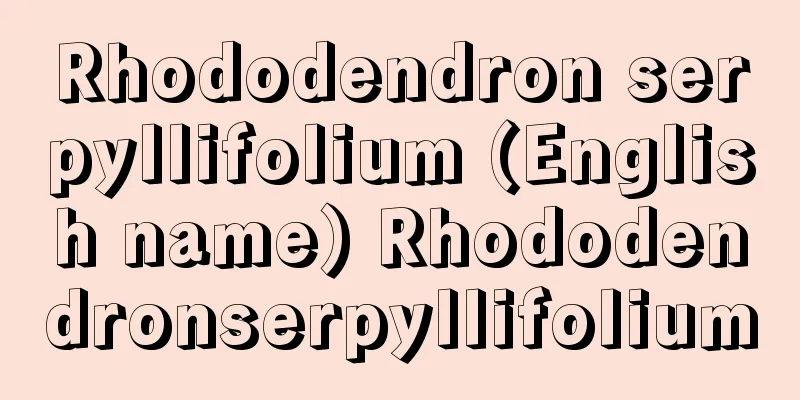

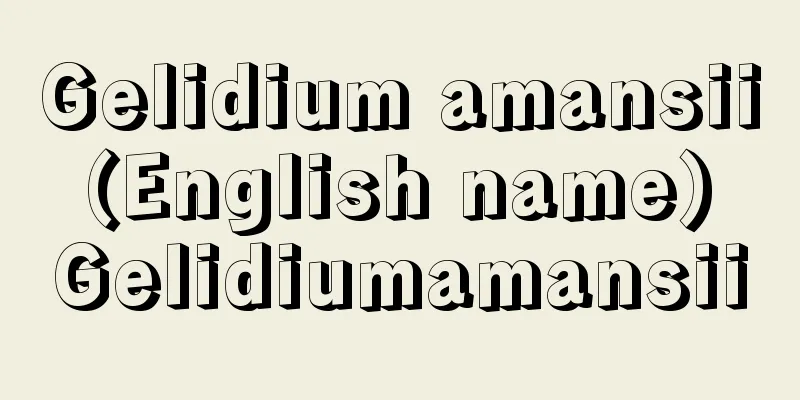

![Niihari [village] - Niihari](/upload/images/67cc6b1ca6922.webp)
